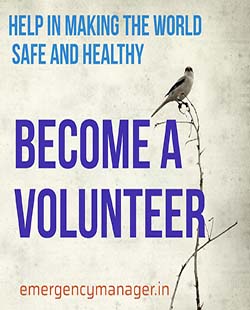

 89
89

The Union Cabinet chaired by the Prime Minister Shri Narendra Modi has given ex-post facto approval for the Establishment of an International Coalition for Disaster Resilient Infrastructure (CDRI) along with its supporting Secretariat Office in New Delhi. The cabinet meeting was done on 28th August,2019.The proposal was approved by the Prime Minister on 13th August, 2019.
The proposal was approved by the Prime Minister on 13th August, 2019. The proposal was approved by the Prime Minister on 13th August, 2019. [caption width=1350] Cabinet approves Establishment of an International Coalition for Disaster Resilient Infrastructure and[/caption]
PM Shri Narendra Modi to launch CDRI during UN Climate Summit in New York on 23rd September 2019
Cabinet approves Establishment of an International Coalition for Disaster Resilient Infrastructure and[/caption]
PM Shri Narendra Modi to launch CDRI during UN Climate Summit in New York on 23rd September 2019
The CDRI is proposed to be launched at the UN Climate Action Summit in New York, USA on 23rd September 2019. Organized by the UN Secretary General, this event will bring together the largest number of Heads of States to generate commitments for combating the effects of climate change and resulting disasters, and will provide the high-level visibility required for the CDRI.
Emergency Manager magazine has already reported about this meeting in New York. Emergency Manager magazine think that this will boost the much needed investment and government intervention in field of disaster infrastructure. Organized by the UN Secretary General, this event will bring together the largest number of Heads of States to generate commitments for combating the effects of climate change and resulting disasters, and will provide the high-level visibility required for the CDRI.The approval, inter-alia, is for the following initiatives:
Major Impact:
The CDRI will serve as a platform where knowledge is generated and exchanged on different aspects of disaster and climate resilience of infrastructure. It will bring together technical expertise from a multitude of stakeholders. In doing so, it will create a mechanism to assist countries to upgrade their capacities and practices, with regard to infrastructure development in accordance with their risk context and economic needs.
In doing so, it will create a mechanism to assist countries to upgrade their capacities and practices, with regard to infrastructure development in accordance with their risk context and economic needs.This initiative will benefit all sections of society. Economically weaker sections of society, women and children, are the most vulnerable to the impacts of disasters and hence, will be benefitted from the improvement of knowledge and practice in creating disaster resilient infrastructure. It will also benefit all areas with high disaster risk. In India, the north-eastern and Himalayan regions are prone to earthquakes, coastal areas to cyclones and tsunamis and central peninsular region to droughts.
It will also benefit all areas with high disaster risk. In India, the north-eastern and Himalayan regions are prone to earthquakes, coastal areas to cyclones and tsunamis and central peninsular region to droughts.Innovation:
There are many initiatives on different aspects of disaster risk reduction and many initiatives on infrastructure development in different in a range of countries with different disaster risk and development contexts.
A global coalition for disaster resilient infrastructure would address concerns that are common to developing and developed countries, small and large economies, countries at early and advanced stages of infrastructure development, and countries that have moderate or high disaster risk. Few concrete initiatives work at the intersection of Sendai Framework, Sustainable Development Goals (SDGs) and Climate Change Adaptation with a focus on infrastructure.
Focus on disaster resilient infrastructure would simultaneously address the loss reduction targets under the Sendai Framework, address a number of SDGs and also contribute to climate change adaptation. Hence, there is a clear niche for a Global Coalition for Disaster Resilient Infrastructure. Few concrete initiatives work at the intersection of Sendai Framework, Sustainable Development Goals (SDGs) and Climate Change Adaptation with a focus on infrastructure. Focus on disaster resilient infrastructure would simultaneously address the loss reduction targets under the Sendai Framework, address a number of SDGs and also contribute to climate change adaptation. Hence, there is a clear niche for a Global Coalition for Disaster Resilient Infrastructure.Publication of natural hazard risk information about the different regions in India will allow the public to understand the risk in their regions and demand for risk mitigation and preparedness measures from their local and State Governments.
..... .... Login with Google and support us